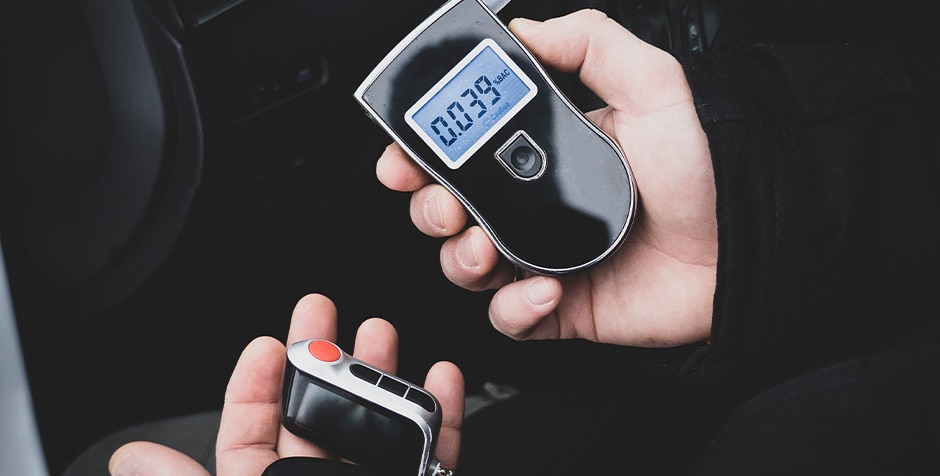
Drug and Alcohol Testing Procedures
Experienced Boston Lawyers Handling Truck Accident Cases
State and federal authorities have enacted strict laws regarding the use of drugs and alcohol in the trucking industry. This is not surprising, considering how massive and deadly these vehicles can be even when drivers are not under the influence of alcohol or narcotics. If you have been involved in a truck accident, one of the things that your Boston truck accident attorney may consider is whether the truck driver was using stimulants, alcohol, or illegal drugs behind the wheel. Many of these drivers have hectic schedules that require them to meet certain driving or delivery quotas. In fact, truck driver fatigue is a common factor in many truck accidents. In some unfortunate instances, drivers turn to substances to cope with the long hours behind the wheel, the boredom, or the solitude.
It is obviously illegal for truck drivers to be intoxicated at the wheel. Any individual who is injured as a result of a driver’s intoxication can seek compensation from the driver and the trucking company that employs them. At Breakstone, White & Gluck, we are prepared to help you seek the compensation that you deserve.
Understanding Laws Regarding Drug and Alcohol Testing Procedures
The Federal Motor Carrier Safety Administration (FMCSA) and the Department of Transportation (DOT) have created many rules that apply to commercial motor carriers like trucking companies that use 18-wheelers and other large trucks. In most cases, these rules require specific testing procedures and administrative protocols for trucking companies. These rules are applicable to anyone who drives or who employs a commercial motor vehicle operator with a commercial driver’s license. This includes trucking company employees who perform safety inspections or maintenance on the vehicles.
When it comes to testing, there are four different situations in which a test may be administered: pre-employment testing; testing upon a reasonable suspicion that the individual is intoxicated or using illegal substances; randomized testing; and post-accident testing to determine if drugs or alcohol were involved. These tests are very broad, identifying substances like cocaine, heroin, marijuana, amphetamines, and alcohol.
Regarding pre-employment testing, the prospective employee must have a negative test result before they can be hired. If a supervisor has a reasonable suspicion of drug or alcohol use, they are required to perform a test. Randomized tests are usually administered in close conjunction with safety-prone events like pre-driving, during driving, and after driving. After some types of truck accidents, moreover, the driver must undergo a drug and alcohol test within a certain timeframe following the crash.
If you were injured in a truck accident, it is important for your attorney to determine whether the driver was intoxicated at the time of the crash. To win damages from a careless truck driver or trucking company, you must show that the driver or trucking company failed to use reasonable care and skill and that this failure was the cause of your injuries. This standard of care encompasses many aspects, including obeying applicable regulations. A reasonable and prudent truck driver would refrain from disobeying clear laws against driving under the influence. Obtaining a copy of police reports or administrative investigation documents regarding the crash can assist you in determining whether the driver was intoxicated. You may also have a claim against the trucking company if it knew or should have known that the driver had an alcohol or drug problem, or if it failed to administer appropriate tests. If you are successful in establishing liability, you can request compensation for your medical bills, lost earnings, and pain and suffering.
Schedule a Free Consultation with a Boston Attorney
Truck accidents cause some of the most traumatic and painful injuries. They also may result in fatalities when they occur at high speeds. At Breakstone, White & Gluck, you will receive the experienced and compassionate legal counsel that you deserve during this difficult time. Tracking down evidence, witnesses, and insurance representatives can be stressful, particularly as you heal from your injuries. Our clients live throughout Massachusetts, including in Boston, Cambridge, Waltham, Lowell, Newton, Somerville, Quincy, Dedham, Norwood, Brookline, Attleboro, Barnstable, Brockton, Plymouth, Worcester, Lawrence, and Springfield. To schedule a free consultation with an attorney, call us now at 1-800-379-1244 or contact us online.
